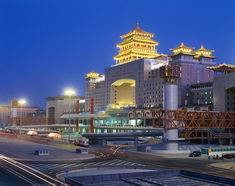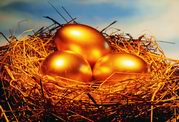 For many businessmen or tourists from Europe and other developed countries, China is always a puzzling country, which seems unbelievable to them, including its politics, philosophy, culture, history and economy. For many businessmen or tourists from Europe and other developed countries, China is always a puzzling country, which seems unbelievable to them, including its politics, philosophy, culture, history and economy.
In fact, the oriental country with the largest population in the world is of course not a developed one although it made amazing achievements in its economic and social development in the past years.
Perhaps you have to have lived in China before to know just how open it is now and how many people have a sense of market about their daily lives and their ability to build their brighter future.
If you enter the country for the first time, it is a better way to get some information from the following briefing about China's current economic development.
The story of China's success begins with the end of the Cultural Revolution (1976-1976) and the central government adopted a policy of reform and opening up to the outside of the world, which was designed and guided by Deng Xiaoping since 1979.
The rapid rise of China's economy, its large population, strategic position and huge potential market, and its enhanced international status have made the country's future development a major factor in international economy.
The 1980s saw radical changes in China's society and economy in the direction of greater openness and prosperity.
Since 1990, China materialized its second strategic objective in the modernization drive, greatly increasing productive forces and seeing people living a relatively comfortable life.
Major historical changes have also taken place in the balance with market supply and demand, in the environment for economic development and in external economic relations.
"All those changes have laid a solid foundation for implementing the 10th Five-Year Plan (2001-2005) and for hitting the third strategic target,"said Zhu Rongji, Chinese Premier.
However, many contradictions and problems still exist in the country's social and economic life, which should not be ignored, Zhu noted.
 These problems include an irrational industrial structure, imbalanced economic development between different regions, being comparatively backward in science and technology, the weak competitiveness of enterprises in general, the shortage of some important resources, increasing employment pressure, a deteriorating environment in some areas, slow income rises for some residents, and the increasing gap in income distribution, he said. These problems include an irrational industrial structure, imbalanced economic development between different regions, being comparatively backward in science and technology, the weak competitiveness of enterprises in general, the shortage of some important resources, increasing employment pressure, a deteriorating environment in some areas, slow income rises for some residents, and the increasing gap in income distribution, he said.
There is a lack of a sound environment in which enterprises of all kinds of ownership can compete on an equal footing and seek common development.
Even so, at a press conference June 15, Qiu Xiaohua, deputy director of the National Bureau of Statistics, said that China's economic performance was better than had been predicted at the end of last year and the beginning of this year.
Qiu attributed the better economic situation to three major reasons 'excellent policy made by the central government, people's hard work and the recovery of the world economy.
China has implemented a pro-active fiscal policy and sound monetary policy for several years to expand domestic demand. It also took advantage of flexible economic levers to adjust economic development.
These policies proved efficient in maintaining the current steady and smooth economic development. These policies also laid solid foundations for further economic development in the future, Qiu added.
Since the beginning of this year, government departments at all levels, under the leadership of the central government, have worked very hard to implement policies and guidelines.
People across the country were full of confidence and helped put more vigoursintosthe micro economy. This was reflected in the fact that private investment grew rapidly, consumer confidence was higher, and business confidence for the future picked up.
According to Xinhua News Agency, China's economy maintained a fast growth in the first half of this year and the National Bureau of Statistics (NBS) forecasts an annual growth rate higher than the seven percent target set at the beginning of the year.
 The Development Research Center (DRC) of the State Council, a think tank of the central government, recently also predicted the economy may grow 7.5 per cent for the whole year, exceeding the 7.3 per cent growth of last year. The Development Research Center (DRC) of the State Council, a think tank of the central government, recently also predicted the economy may grow 7.5 per cent for the whole year, exceeding the 7.3 per cent growth of last year.
The DRC forecasts domestic demand will continue to grow in the latter half of the year though growth of overseas demand may slow down.
In the first six months of the year, industrial output in China rose 11.7 percent from the corresponding period of last year.
Light and heavy industries grew 12.6 per cent and 19.2 per cent respectively.
In the same period, the sales-output ratio of industrial products rose by 0.36 percentage points to 97.11 percent. Exports of industrial products surged 22.9 per cent on a yearly basis.
On the supply side, all industrial sectors maintained a balanced growth in the first half of this year.
On the demand side, the domestic market has kept expanding while the international market improved slightly.
The growth rate of both investment and consumption kept rising for six consecutive months since the beginning of the year.
Official statistics showed fixed asset investment soared 24.4 per cent in the first half of the year, continuing to be the major driving force of the economy.
Meanwhile, retail sales grew 8.6 percent year-on-year to 1,944.
8 billion yuan (235.2 billion US dollars) from January to June.
Exports grew faster than expected. The total value of exports surged 14.1 per cent to US.1 billion, while inflow of foreign direct investment rose 18.7 per cent to US.6 billion.
Major economic indicators showed that the economy maintained a healthy, stable and fast growth in the first half of the year, economists with the NBS said.
The economists also said that the economy is still confronted with some protruding problems. Increasing uncertainty in international situation has an adverse impact on Chinese economy.
Falling oil prices in the international market weighed down factory prices of Chinese industrial products, which in turn contributed to a downward trend of consumer price index.
Despite growing signs of recovery in the economies of the United States and Japan, the international community remained cautious about how long or how further the recovery can go.
Local economists warn against over-optimism of the international environment, saying China may face greater difficulties in expanding exports in the latter half of the year.In the meantime, the country is facing greater unemployment pressure as it accelerates industrial restructuring after entering the World Trade Organization (WTO).
Also, the State Information Center predicts that conditions are favorable for investment to expand further in the latter half of the year.
The rapid growth of direct foreign investment will be a strong impetus.
For example, foreign investment in technical upgrades of Chinese businesses rocketed 58.2 per cent over January-May, more than five times the growth of government funding and corporate financing.
The State Information Center says the financial environment is sound for investment growth at present as China boasts negative inflationary pressure, low interest rates, a big trade surplus and fast growth in savings deposits. The Chinese people's savings deposits in banks have topped eight trillion yuan, providing a strong basis for increasing loans and investment.
However, China is yet to expand its investment channels. In contrast to a double digit growth in savings deposits, its security market lingered in the doldrums. Chinese businesses rise less than one quarter of their capital through direct financing, indicating a lack of investment tools for the Chinese people.
According to some experts, sluggish consumption and oversupply in the market are expected to continue adding deflationary pressure on China's economy.
The major indicator of deflation - the consumer price index (CPI) - registered a year-on-year drop of 0.8 per cent in the first five months of this year, and the rate is 1.9 percentage points higher than that of the same period 2001. Urban consumer prices declined by 1.1 per cent year-on-year, rural prices fell by 0.2 per cent, and the trend is expected to continuesintosthe second half of this year.
Statistics show that in the first six months of this year, the overall CPI might fall by 0.9 per cent, further adding deflationary pressure.
Although the CPI last year showed a slight rebound, rising 0.7 per cent, a downward trend began in the fourth quarter. In the first two months of this year, generally a busy season for domestic consumption, the CPI continued to fall, registering a drop of 0.5 per cent year-on-year.
Insufficient demand remains the major reason contributing to the decline in consumer prices, while the lowering of tariff levels following China's entrysintosthe World Trade Organization (WTO) and a soft world market also fuelled the drop in prices.
In the first five months, total consumption volumes nationwide rose by 8.6 per cent year-on-year. The growth was encouraging, but the rate was 1.7 percentage points lower than in the same period last year.
Considering the massive salary hike public servants received last year and the growth of residents'income in 2002, the slowdown in the growth rate is quite noticeable.
In the first quarter, per capita disposable income of urban residents rose by 16.2 per cent to 2,126 yuan (US.1), and per capita cash income of rural residents grew by 7.2 per cent to 682 yuan (US.2).
The fact that income growth did not greatly stimulate consumption suggests reduced demand among Chinese residents. The lowered tariff rate for imports, which was reduced from 15 per cent on average to 12 per cent this year, also played a part in the decline of consumption prices.
The slowdown of the country's economic growth further exacerbated the problem. The continuous decrease in the economic growth rate in the four quarters of last year has led many to lose their confidence in fast economic growth. And dampened confidence has curbed consumption.
On the other hand, holiday consumption, which used to be effective in fighting deflation, also lost some of its strength. While certain conditions contributing to dwindling consumer prices are to remain unchanged in the second half of this year, other factors are expected to worsen the overall price situation.
With the arrival of the harvest season, the oversupply of agricultural products will become more striking in the later half of the year, since it will lead to price declines of agricultural products.
| ![]() 本网站由北京信息港提供网络支持
本网站由北京信息港提供网络支持
![]() 本网站由北京信息港提供网络支持
本网站由北京信息港提供网络支持